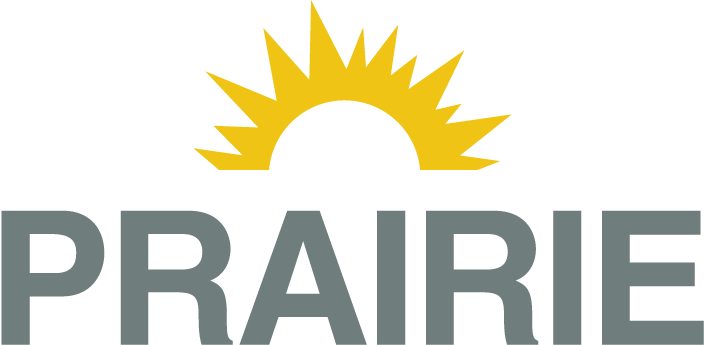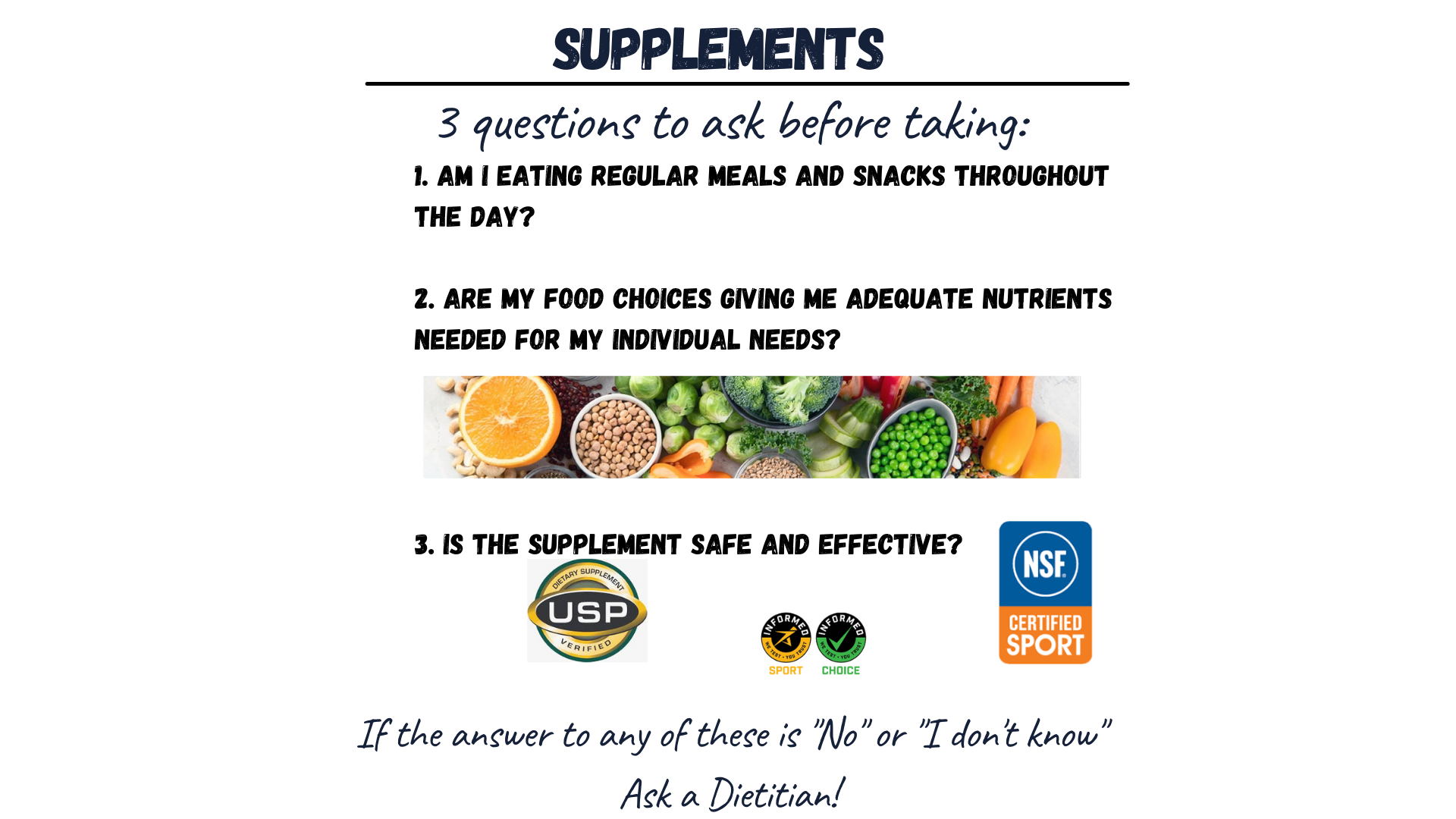Supplements
Dr. Tara Larowe
A common question I get as a RDN from athletic populations is, “what do you think about [insert supplement here]?” My response is usually unsatisfying to the person asking. Deciding on whether to take a supplement depends on many factors related to individuals’ performance goals and current diet, but also on the supplement’s purpose, effectiveness and safety.
Dietary supplements are defined a food, food component, nutrient, or non-food compound that is purposefully ingested in addition to the habitually consumed diet with the aim of achieving a specific health and/or performance benefit. Supplements come in many forms: single nutrients such as vitamins and minerals, sports foods (e.g., sports drinks/bars/gels, protein powders), and ergogenic aids (e.g., caffeine, creatine.) Consumers often do not realize that the FDA regulates supplements differently than food products. The FDA prohibits manufacturers from selling or marketing products that are adulterated or misbranded, but the FDA does not test for safety, quality or purity of the supplement prior to selling. Unfortunately, this leaves grey area for both manufacturers and consumers. In other words, buyer beware.
Confused? Here are some questions to ask before taking a supplement:
Am I eating regular meals and snacks throughout the day?
You are most likely getting enough nutrients if you have an established eating pattern consisting of two to three meals plus one to three snacks per day. Meal-skippers or those that eat erratically from day to day may not be meeting nutrient or energy needs. Before taking a supplement to fill the gap, consider focusing on establishing a consistent meal and snack plan.
Are my food choices giving me adequate nutrients needed for my individual needs?
Do a quick assessment of the foods that you eat throughout the day. Are you eating at least 3 servings of vegetables? At least 2-4 servings of fruit? What about balanced sources of carbohydrates, proteins and fats and drink plenty of water? If your answer is ‘yes’, taking dietary supplements is not necessary. If your answer is ‘no’, see where you can swap in healthy choices in every meal and snack.
Is the supplement safe and effective?
The safety and effectiveness should always be priority before taking a supplement. Manufacturers are obligated to produce a safe product, but there are some steps consumers can take when choosing supplements to verify good manufacturing practices. Look for the labels USP and GMP; these labels identify manufacturers are using good manufacturing practices and that the consumer can be assured that they are purchasing what is listed on the label. The NSF Certified for Sport ® and Informed-Sport labels are third-party quality assurance programs that verify supplements do not contain unsafe levels of contaminants or prohibited substances. Understanding the effectiveness of a supplement requires some homework. Do not rely on product messages seen on Instagram, Tik Tok or other social media! If you are savvy reading scientific research, I suggest doing a Google Scholar search. An even better option is to contact a Sports Dietitian, like myself, that has background training in critically analyzing science and translating into applicable recommendations.
The bottom line is that very few individuals can out-supplement a poor diet. For the athlete, if your goal is to increase strength or performance, fix anything that can be improved in your training or diet BEFORE supplementing. A food-first approach should always have first consideration before deciding whether to supplement.
Summer Training
Check out our new website (ESPathletes.com) and get your assessment set up to start off your summer training! Any questions, contact Kevyn at [email protected].
Summer Schedule
Check out our finalized summer schedule HERE:


